
The vast majority of pharmaceutical companies and Clinical research organizations (CROs) ask for an MSc in Statistics (or Medical Statistics) when hiring statisticians, claiming these degrees in particular provide adequate preparation and the necessary hands-on experience to work in the industry. However – how strict is this rule across different companies, and should this be a requirement? Can similar qualifications such as an MMath or PGDip (which can have a lot of crossover with traditional statistics MScs) be equivalent and provide the required statistical training for a successful career in industry? Or can a BSc be sufficient? I aimed to answer these questions by asking senior statistical leaders and recruiters for their views through 4 questions.
Methodology
- Find suitable contacts in pharmaceutical/biotech companies, CROs, universities, recruitment agencies and others
- Create draft “test” questions and send to small number of contacts, receive feedback if questions are clear and understood
- Create final 4 questions and send to all contacts, collate results, conduct follow-up discussion
Responses
Of the 34 people emailed, 18(53%) responses were received. The percentages below are out of total for that Type of Company.
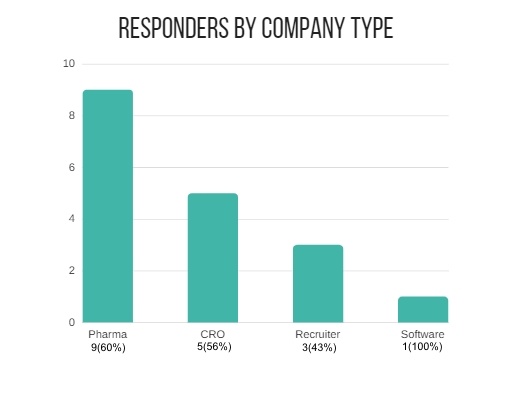
Results
1) Would you employ a graduate statistician without an MSc in Statistics, but with an alternative Masters level qualification?
Some “yes” answers came with a condition – if it was an exceptional candidate, if they had right skills, if there was a good foundation in Statistics, etc. The Yes/No split was even between pharma companies and CROs.
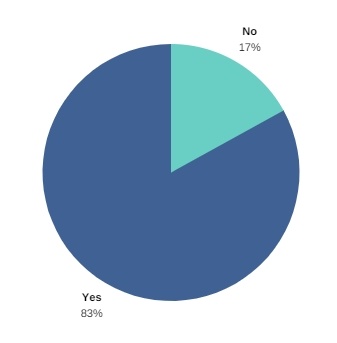
2) If yes, which alternative Masters level qualifications would you consider?
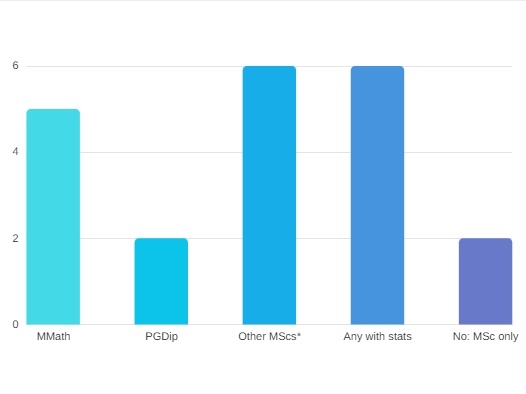 *Includes mathematics, epidemiology, bioinformatics, medical areas, psychology, genetics, data science, machine learning.
*Includes mathematics, epidemiology, bioinformatics, medical areas, psychology, genetics, data science, machine learning.
3) Do you feel that not having an MSc would put someone at a disadvantage?
Almost everyone felt that without any Masters degree one would be disadvantaged, especially if starting out in career. Six said that a PhD is becoming a growing preference with two of those saying that not having a PhD would be disadvantage, especially for American companies.
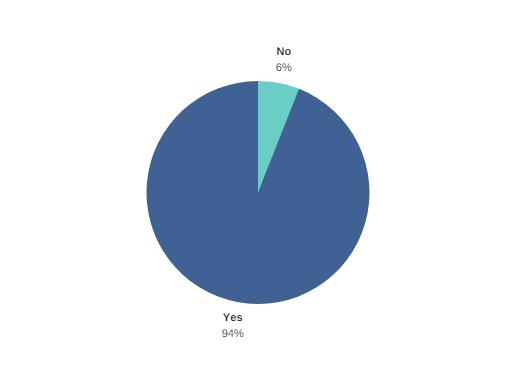
4) Do you think the typical requirement for an MSc in statistics is justified, or an unnecessary formality?
The various reasons given were:
- Masters degrees demonstrate hard work and knowledge
- CROs need to showcase their talent and an MSc does this
- The complexity and more practical components of an MSc
- Companies are pushing Statisticians to be more technical, hence the high requirements
- MSc degrees provide better training and require more perseverance
One commented that BSc + Placement students could give MSc graduates a run for their money, and three said they would consider someone with a BSc if they fulfilled the requirements and had considerable relevant experience (10+ years) and depth of knowledge. Six said BSc + PhD would also be accepted. There was a confusion between different types of Masters; people said that the MSc requirement is justified, but that other Masters degrees are also fine. Clearly the requirement is justified, but in reality not always necessary.
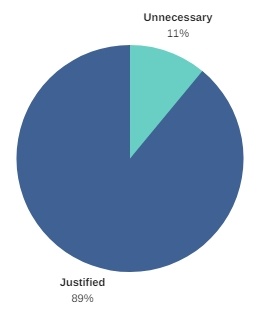
Conclusion
From the results we can conclude that some form of Masters is a definite requirement, even that a PhD is favourable. However several of those surveyed said they know successful statisticians without a Masters degree.
Employers typically appear to be open to many types of Masters degrees - some have not heard of more obscure ones like MMath, but would happily accept it as a form of qualification if it demonstrates enough statistical content!
As one advances in their career and applies/progresses to more senior positions, the less relevant academic background is as this becomes “ancient history”. Even graduates with an MSc and PhD can struggle to enter the career ladder, as companies are increasingly wanting industry experience.
Clearly, each company has their own policy on this. One general recommendation for the industry would be to promote this career choice more in a wider variety of courses – currently, the Pharma industry gets no mention as a potential workplace in any traditional maths courses! Companies should also be more explicit about their entry requirements – asking specifically for an MSc in Statistics when actually they would be open to other qualifications, eliminates a lot of graduates that don’t apply because they get put off by the strict requirement and don’t realise they could actually be eligible. Also, companies should look into the course content rather than just the name, in order to not miss out on quality candidates that may not match their “ideal profile”.
In short, while an MSc is not the be-all and end-all of a career as a pharmaceutical statistician (but it helps), some sort of Masters in a quantitative discipline is definitely recommended!
Interested in our open vacancies in biostatistics?
Related Content
- Quanticate Graduate Video
- What our Graduates think of our company values REACH
- Quanticate LinkedIn Careers Page



